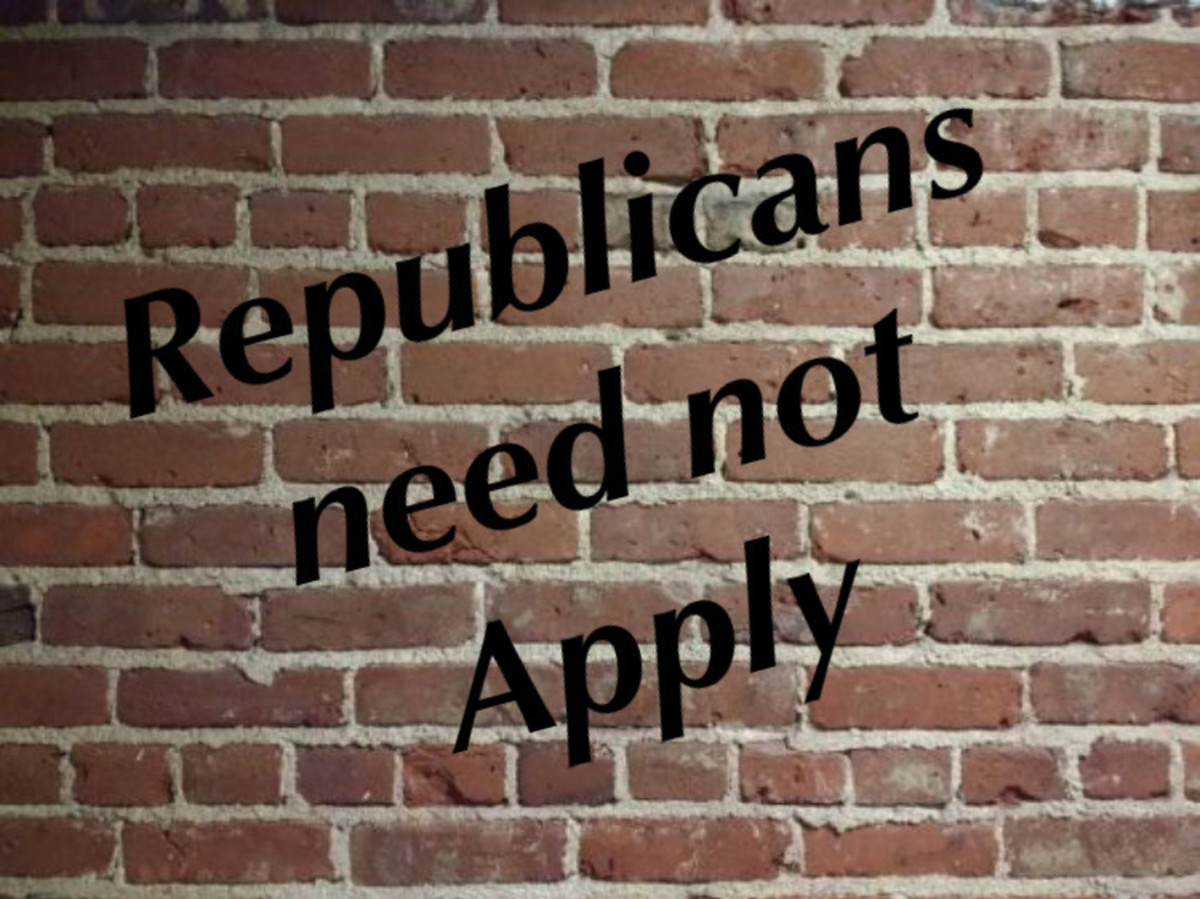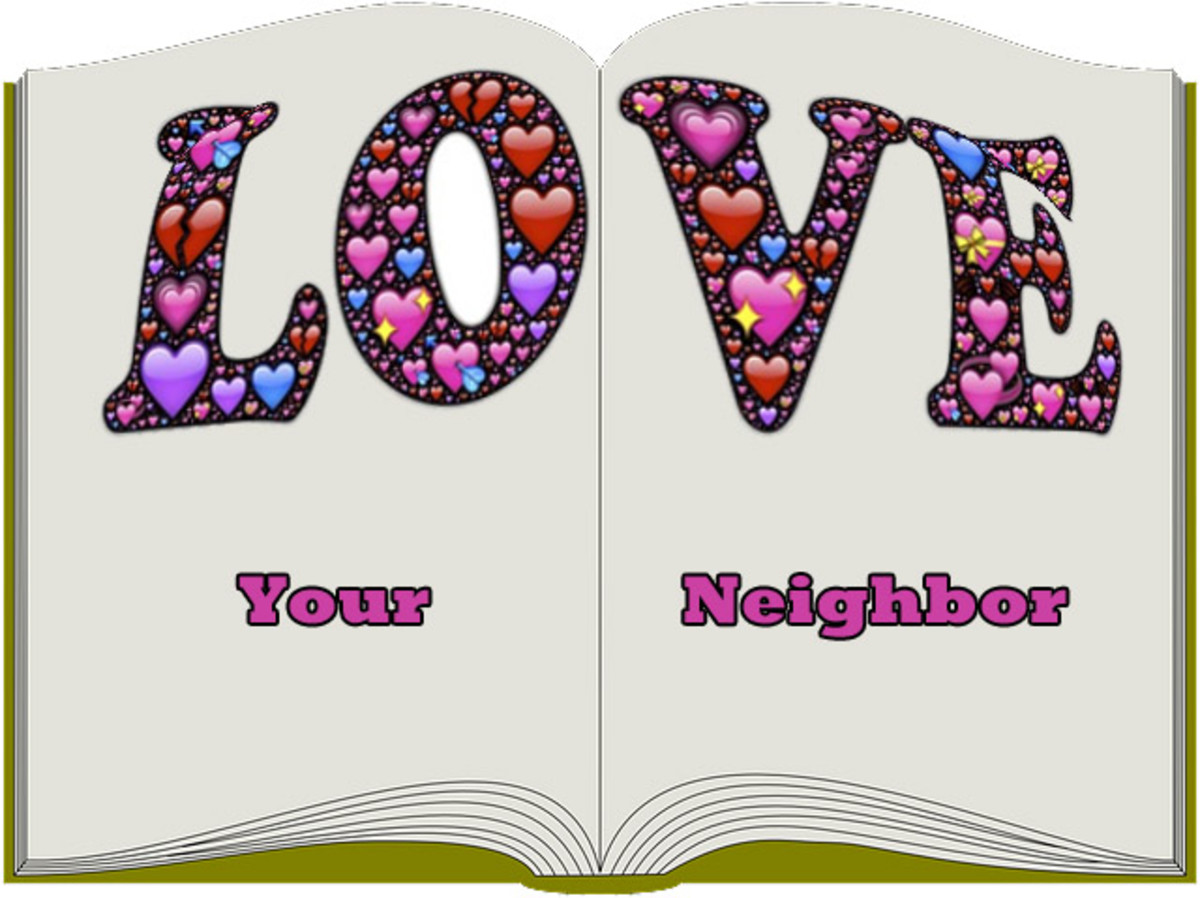Setting Ourselves up to be Stereotyped and Labeled

Important Quotes About Stereotypes
"I encourage students to pursue an idea far enough so they can see what the cliches and stereotypes are. Only then do they begin to hit pay dirt."
Robert Morgan, American Poet
"In a lot of films, they're showing more complete, developed characters of diverse ethnic backgrounds. The larger concern is to be able to tastefully explore the stereotypes, and still move past them to see the core of people."
Forest Whitaker, American actor, director, and producer
"Yeah, I had gay friends. The first thing I realized was that everybody's different, and it becomes obvious that all of the gay stereotypes are ridiculous."
Bruce Springsteen, American musician
Arguing about Faith on the Internet
“It doesn’t matter where we’re from, as long as we’re all the same religion.”
Peter Griffin, Family Guy (20th Television)
An intriguing we see people stereotype themselves is when someone declares their beliefs (or unbeliefs) on a general internet discussion forum. Or worse yet, some declare nothing but post scripture or prophecy.
It's like waiting for the mail each day; you know it's going to come - the tsunami of skepticism, ridicule, and furious debate.
The person who made the original post, if they haven't experienced this yet, is often left dazed and hurt, thinking those that replied indignantly have some sort of personal issue with them.
They haven't learned that by declaring their allegiance to one ideal or another that they've labeled themselves.
People are generally leery of anyone who is blatantly trying to sell them something. This includes religion. The people who reply negatively to someone proclaiming they are a Christian on an online forum probably do so because they've been exposed to other Christians who have attempted to do what they perceive their religion orders them to do - recruit more followers.
It's far better to get into a religion discussion topic with an open mind. Sharing philosophical beliefs, whether religious in nature or not, is the way we learn more about ourselves and more about the wider spectrum of religion and philosophy. A Christian might be fascinated with and want to learn more about Shintoism, for example. Does this make them a bad Christian? Hardly. It makes them a curious and possibly wise human being.
There are plenty of Christians that will tell you that the more they learned about other religions in the world, the more they learned about themselves and their own Christian beliefs. It doesn't mean they are planning to convert to another religion, but because they are labeled Christian, their Christian group may persecute them for stepping outside their belief system. The person would probably be inclined to secret away their interest in other religions, especially in a setting like an online forum where there are other Christians watching.
The same can be said of the Muslim who agrees with an Atheist's statement. Other Muslims and Christians would be quick to pounce on that poor soul, simply because the acquiescing person is not playing by the perceived rules of belief.
Stereotypes in America
The collective wisdom of the people of the United States has decided to give everyone a label. The poor, the rich, the blacks, the whites, the conservatives, and the liberals are all examples of labels given to people.
If you think abortion is wrong, you must be a conservative. If you think gays should be allowed the same marital rights as heterosexuals, you’re a liberal. If your friends are mostly people from other cultures, you’re a sellout. If you take pride in your race, you’re a racist.
Everybody fits into some category, whether they agree with the label or not. The problem with this is that every human being has unique and complex thoughts and emotions.
You know why you see politicians stammer sometimes when asked a question by a reporter? It’s because they had to stop themselves saying what they’d planned to say because what they’d planned to say would go against their label. If the politician got voted in as a Democrat, he or she had better be very careful about saying something conservative lest they be labeled a sellout.
What this does is urge people to speak in rehearsed tones. It’s safer to develop a stock answer to philosophical questions so our friends don’t get the wrong idea about us.
A conservative who sees no reason why gay marriage should be illegal will carefully avoid debating that subject publicly. They’re afraid they’ll get the liberal label. A person whose co-workers consider him or her liberal would be shocked to hear that person say they think religion should be taught in schools. They’d think that person must be unsettled to harbor such outrageous and conflicting philosophies.
The problem with all this is that you can’t categorize a human being. We’re way too complex; our thoughts and emotions are ever-changing as we age and learn more. Of course, that assumes the person has not stopped their willingness to consider other opinions and keep an open mind.

Do You Get Carried Away with Online Arguments?
Breaking Free from Labels and Thinking for Ourselves
The most tragic aspect of being labeled is that it causes people to lock away their ability to think freely and form their own opinions. Stock answers are easily memorized; so much so that people are ready to debate their ideals without considering what an opposite opinion is saying.
The biggest labels of all, and these apply to all mankind, are the beliefs, or lack of, that each person has. You’re a Sunni Muslim; you’re a Fundamentalist Christian; you’re an Atheist or an Orthodox Jew. Get one of these labels attached to yourself and now you’ve acquired some major expectations from the people who've been labeled the same. Believing in God, which you’d think would rally people with the same belief, is actually more likely to get you another, more precise label.
It’s not a new concept, thinking for ourselves, but it’s one we all need to remember. In the Internet Age, everything is categorized. It makes it easier to roam around the virtual world and find what we're looking for. However, we must not let the world, our country, or anyone categorize us. We are human beings, all the same, yet all different.
No one can be described with any combination of labels. They simply cannot encompass our complexity, nor our ability to reason.








